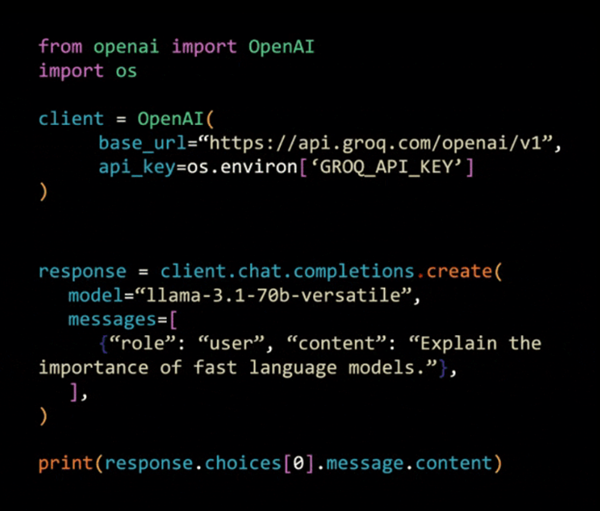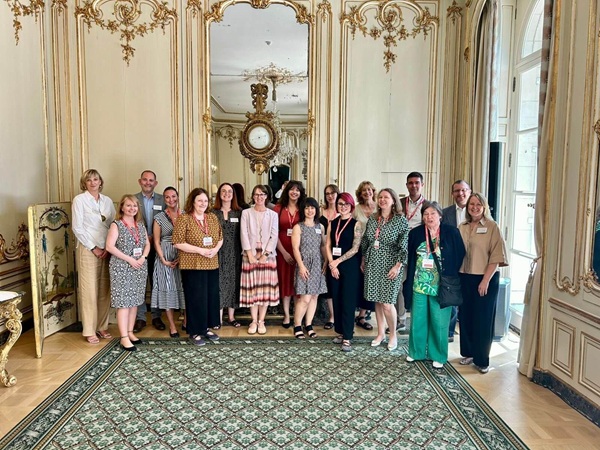1. Maersk Expands in Peru with New Olmos Hub
Maersk Boosts Presence in Northern Peru with New Olmos Cold Chain Facility
Global logistics giant A.P. Moller – Maersk has officially launched a state-of-the-art packing and cold chain logistics hub in Olmos, Peru, marking a significant expansion of its operations in Latin America. Strategically located in the Lambayeque region—one of Peru’s most dynamic agricultural zones—the new facility is poised to transform the country’s agro-export landscape.
A Strategic Investment in Peru’s Agro-Export Future
The Olmos facility spans 17,500 square meters and is designed to support the booming export of high-value fruits such as avocados, blueberries, mangoes, and grapes. With Peru’s fruit exports surging—blueberry exports alone rose by 35.7% in 2024 —Maersk’s investment addresses a critical need for integrated cold chain infrastructure to reduce post-harvest losses and improve export quality.
Dean Rodin, Managing Director for the West Coast of South America at Maersk, emphasised the strategic importance of the location:
“By establishing operations in Olmos, we’re empowering local producers to compete on a global scale with the speed and quality that today’s markets demand.”
Facility Features and Capabilities
The Olmos hub offers a comprehensive suite of services, including:
- Processing Capacity: Up to 38 tonnes/hour for avocados and mangoes, and 4.5 tonnes/hour for blueberries.
- Storage: Over 4,600 climate-controlled bins and 2,088 pallet positions in refrigerated chambers.
- Cooling Infrastructure: Seven rapid cooling tunnels with 18 positions each, including specialised precooling systems for blueberries.
- Logistics Integration: Five loading docks, 420 container slots, and 210 plug-in points for refrigerated transport.
- Technology: Automated packing lines, electronic sorting systems, and advanced inventory management via WMS and ERP platforms.
Sustainability and Innovation
In line with Maersk’s 2040 decarbonisation goals, the facility incorporates electrified equipment and an on-site water treatment system. Solar panels are scheduled for installation in 2026 to further reduce emissions and promote renewable energy use.
Economic Impact
The facility is expected to handle over 10,000 tons of produce in its first year, significantly reducing fruit damage and cutting transit times to ports like Paita by up to 40%. This efficiency translates into higher market prices and increased competitiveness for Peruvian exporters.
A Model for Emerging Market Logistics
Maersk’s Olmos facility is more than just a logistics hub—it’s a blueprint for modern cold chain infrastructure in emerging markets. As global demand for fresh produce and ESG-compliant supply chains grows, Peru’s agricultural sector stands to benefit immensely from this strategic investment.
With Peru’s agricultural exports projected to reach $15 billion by 2026, Maersk’s expansion in Olmos positions the company—and the region—for long-term success in the global marketplace.
2. Wrisk InsurTech expands into EU with £12m funding

British InsurTech firm Wrisk has secured £12 million in Series B funding, marking a significant milestone in its mission to transform automotive insurance across Europe. The round was co-led by Mundi Ventures and Opera Tech Ventures, the venture arm of BNP Paribas, with continued support from existing investors QBN and Volution.
Founded in 2016, Wrisk has carved out a niche in embedded insurance solutions tailored for the automotive sector. Its platform enables car manufacturers to offer seamless, branded insurance experiences integrated throughout the vehicle ownership lifecycle—from quote and bind to renewal and claims. The company already powers insurance programmes for major OEMs including BMW, MINI, Volvo, Mercedes-Benz, Jaguar Land Rover, and Stellantis.
Strategic Growth and European Ambitions
The fresh capital injection will accelerate Wrisk’s expansion into European markets, where demand for digital, data-driven insurance solutions is surging. With a commercial team established in Munich and regulatory licences secured, Wrisk is well-positioned to support both new clients and existing UK partners looking to scale operations across the continent.
CEO Nimeshh Patel emphasised the strategic importance of the funding:
“This investment is a strong endorsement of Wrisk’s vision. We’re not just digitising insurance—we’re embedding it into the very fabric of the automotive experience. Our goal is to become the embedded insurance partner of choice for the global automotive industry.”
Data-Driven Differentiation
At the heart of Wrisk’s offering is its proprietary embedded data framework, designed specifically for automotive use cases. This system harmonises real-time data from insurance, vehicle telematics, financial records, and customer behaviour to deliver personalised, scalable, and intelligent insurance experiences.
This data-centric approach has already yielded impressive results. In 2024, Wrisk achieved triple-digit revenue growth and wrote over 100,000 policies, underscoring the scalability and effectiveness of its model.
Industry Backing and Future Outlook
Investors are bullish on Wrisk’s potential. Rafaela Andrade, Partner at Mundi Ventures, noted:
“Wrisk has demonstrated a clear understanding of the evolving needs of automotive manufacturers. Their holistic approach to embedded insurance is exactly what the market needs as mobility continues to evolve.”
With this funding, Wrisk plans to deepen its data and intelligence capabilities, expand its partner programmes, and continue shaping the future of mobility insurance in a rapidly changing automotive landscape.
3. Groq Takes on Nvidia with European Expansion

Nvidia Challenger Groq Expands with First European Data Center in Finland
In a bold move to expand its global footprint and challenge Nvidia’s dominance in the AI hardware space, U.S.-based semiconductor startup Groq has launched its first European data center in Helsinki, Finland. The expansion marks a significant milestone for the company as it accelerates its international growth and aims to meet the surging demand for AI inference capabilities across Europe.
Strategic Expansion into Europe
Groq’s new facility, developed in partnership with Equinix, leverages Finland’s abundant renewable energy, cool climate, and robust digital infrastructure. These factors make the Nordic region an increasingly attractive hub for data centers, especially those focused on energy-intensive AI workloads.
“Europe is seeing explosive demand for AI inference,” said Jonathan Ross, CEO and founder of Groq. “With our new European data center, customers get the lowest latency possible and infrastructure ready today. We’re unlocking developer ambition now, not months from now.”
What Sets Groq Apart
Groq is best known for its Language Processing Units (LPUs)—a chip architecture purpose-built for AI inference rather than training. Unlike Nvidia’s GPUs, which dominate the training of large AI models, Groq’s LPUs are optimised for real-time inference, offering ultra-low latency and high throughput. For example, Groq’s chips can generate over 500 words in about one second, compared to nearly 10 seconds for Nvidia’s GPUs.
Additionally, Groq’s LPUs avoid reliance on expensive components like high-bandwidth memory, which are in limited supply. This gives Groq a supply chain advantage and allows it to offer cost-effective, high-volume inference solutions.
A Growing Rival to Nvidia
While Nvidia still commands over 80% of the high-end AI chip market, Groq is carving out a niche in the inference segment. The company is backed by major investors including Samsung and Cisco, and is currently valued at $2.8 billion.
Ross emphasised that Groq is not trying to replace Nvidia but rather complement the ecosystem: “We’re happy to take the high-volume, lower-margin inference business and let others focus on the high-margin training,” he told CNBC.
Implications for the AI Ecosystem
Groq’s expansion into Europe comes at a time when AI infrastructure is under intense scrutiny for energy use, data sovereignty, and latency. By situating its data center in Finland and partnering with Equinix, Groq is addressing these concerns head-on—offering sustainable, secure, and low-latency AI services to European enterprises and governments.
With this move, Groq joins a growing list of U.S. tech firms investing in European AI infrastructure, signaling a broader shift toward regionalised AI compute to meet local regulatory and performance demands.
4. MeetEngland annual European trade mission

MeetEngland Leads Annual European Trade Mission to Strengthen Global Ties in Key Growth Sectors
MeetEngland, the business events division of VisitEngland, successfully concluded its annual European trade mission from July 1–4, 2025, with stops in Geneva, Paris, and Brussels. The mission aimed to deepen international engagement and position England as a premier destination for association congresses across key growth sectors.
Joined by representatives from leading English convention bureaus—including London, Manchester, Bristol & Bath, Leeds, and Oxfordshire—the MeetEngland team hosted a series of networking events targeting international associations and professional congress organisers. These events focused on sectors such as medical and life sciences, professional services, clean energy, advanced manufacturing, and the creative industries.
Each city’s event was supported by UK diplomatic representatives, including Ambassador Simon Manley in Geneva, Deputy Head of Mission Andrew Dalgleish in Paris, and Ambassador Anne Sherriff in Brussels. These ambassadors emphasised the importance of partnerships and the role of association congresses in fostering innovation and economic growth.
Paul Black, Head of Business Events at VisitEngland, highlighted the strategic value of the mission:
“Association congresses play a critical role within England’s business events ecosystem, serving as catalysts for knowledge exchange, innovation, and collaboration across key growth sectors, whilst significantly contributing to the regional and national visitor economy.”
The mission also provided a platform for English cities to showcase their tailored support services, academic networks, and stakeholder engagement opportunities—key factors in securing future international events.
Richard Moss, Business Visits and Events Manager at Manchester Convention Bureau, added:
“For Manchester, attending trade missions with MeetEngland is more than representation—it’s about the connection.”
By fostering these international relationships, MeetEngland continues to strengthen England’s position on the global stage as a hub for impactful, knowledge-driven events.







